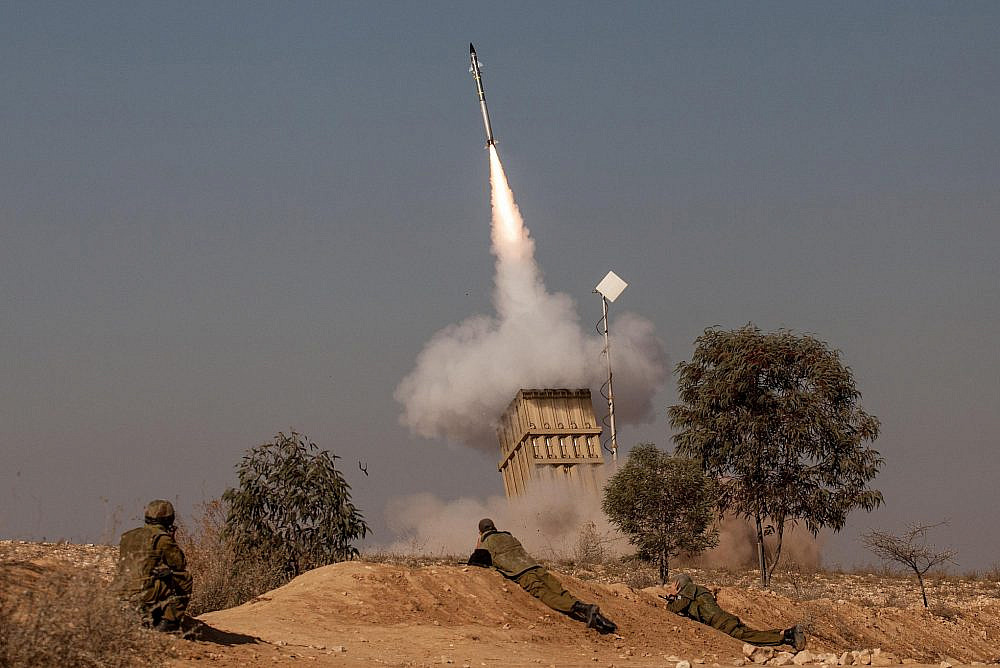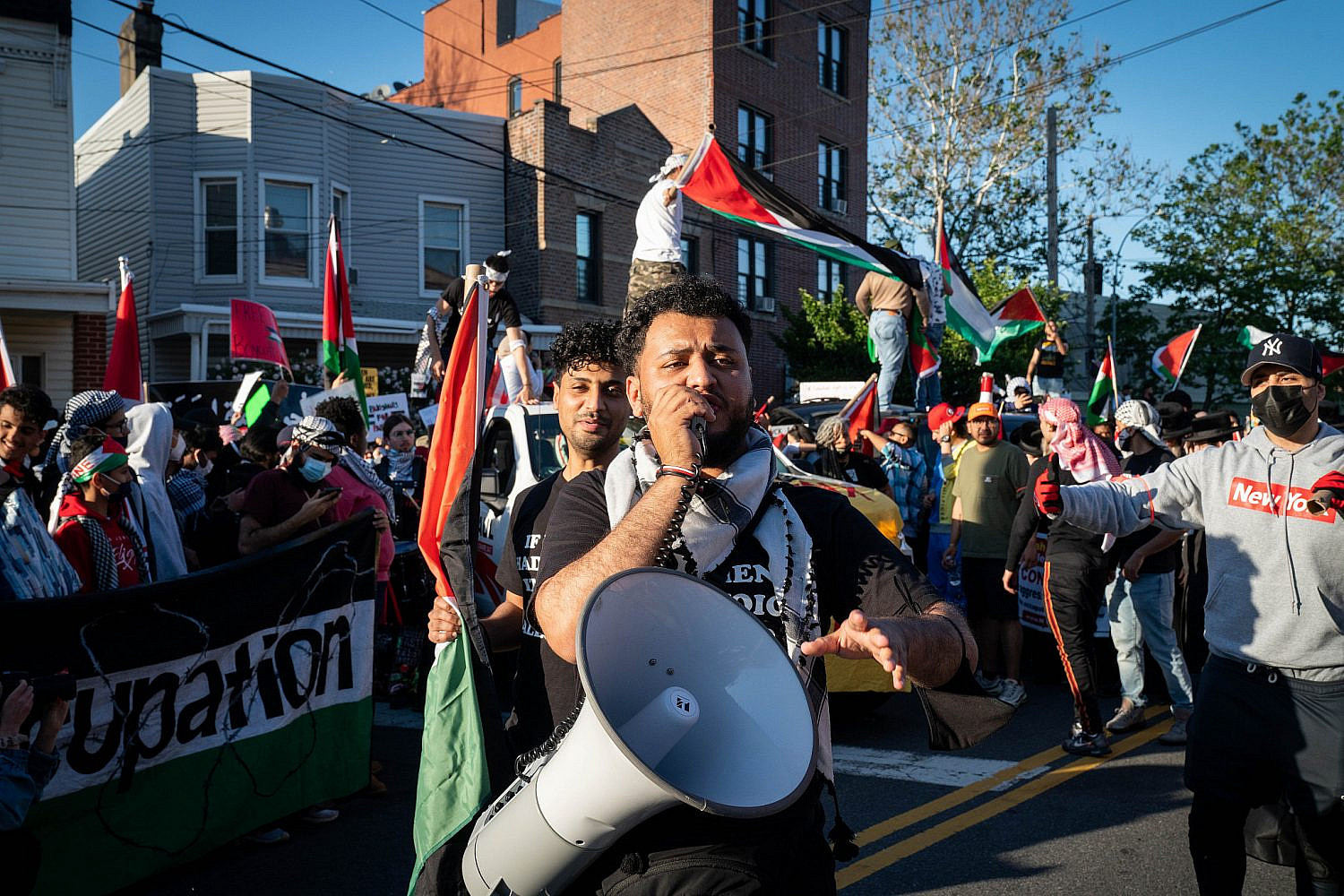Two weeks after Israel and Hamas agreed to an Egyptian-brokered ceasefire to end 11 days of intensive violence, U.S. Senator Lindsey Graham announced on June 1 that Israel was planning to make a $1 billion request to the Pentagon to “replenish” its Iron Dome anti-missile system. The Republican Senator, who was visiting senior Israeli officials in Jerusalem, admitted that there had been “a big dustup” in Congress over the latest escalations, but insisted that “there’s a wide and deep support for Israel among the Democratic Party” to ensure the request would be approved.
While Graham’s assurances about bipartisan support are correct, the “dustup” in the United States has certainly not died down. Since the start of Israel’s assault on Gaza last month — the fourth large-scale operation in the strip in 20 years — the debate around Washington’s financial support for Israel, along with its long undiscussed moral quandaries, appear to have broken even more tremendous ground in the national political conversation. This comes despite mainstream U.S. media and social media companies skewing reporting on the escalations in Gaza, as well as on Israel’s efforts to expel Palestinian families from the Jerusalem neighborhoods of Sheikh Jarrah and Silwan.
As the bombing of Gaza began on May 11, shortly after Hamas fired rockets under the pretext of challenging Israel’s repressive policies in Jerusalem, White House spokesperson Ned Price released a statement condemning Hamas while urging “de-escalation on all sides.” But during his press briefing, Price was challenged by reporters to comment on the killing of civilians in Gaza and on the legality of the Israeli army’s targets. The reporters’ questions were met with clumsy rebuttals from Price, with lines such as “We don’t have independent confirmation of facts on the ground yet, so I’m very hesitant to get into reports that are just emerging.”
On the same day, former Democratic presidential nominee Andrew Yang, who is currently in the running for mayor of New York City, received unexpected backlash for his stance on the Gaza violence. “I’m standing with the people of Israel who are coming under bombardment attacks, and condemn the Hamas terrorists,” he tweeted. “The people of NYC will always stand with our brothers and sisters in Israel who face down terrorism and persevere.” Yang’s tweet was immediately met by criticism from progressive activists and politicians.

Yang’s comments contrasted with other Democratic nominees in the mayoral race in New York, such as Kathryn Garcia and Scott Stringer, the only Jewish major candidate, who declared support for Israel whilst acknowledging the violence that Palestinians civilians were being subjected to. Dianne Morales, a leftist candidate who is also running for the seat, vociferously expressed her solidarity with Palestinians, saying that “From Palestine to Colombia… state violence is interconnected.” Given that every New York mayor since 1948 has publicly gone on the record with their support for Israel, it appears that what was once an obvious, politically correct stance for a mayoral candidate is now under serious scrutiny in the American political discourse.
Now, the progressive wing of the Democratic Party seems eager to bring these shifts to Congress. In an emotional May 14 address on the House floor, Palestinian-American Congresswoman Rashida Tlaib delivered a resounding call for a federal response that centered the lives of the Palestinian civilians being lost to an American-financed military power. Tlaib’s call to action was then acted upon by a group of progressive House Democrats, led by Rep. Alexandria Ocasio-Cortez, who on May 18 introduced a resolution to the House floor to block a $735 million weapons sale to Israel that had recently been approved by the White House.
Former Democratic Presidential nominee Senator Bernie Sanders also doubled down on Ocasio-Cortez’s efforts, introducing a second piece of legislation aiming to block the U.S.-sponsored sale of weapons to Israel. “At a moment when U.S.-made bombs are devastating Gaza, and killing women and children, we cannot simply let another huge arms sale go through without even a Congressional debate,” he tweeted on May 19.
All these landmark initiatives, of course, stood in stark contrast to the traditional positions of establishment Democrats, including House Speaker Nancy Pelosi, who stated, “it is in the U.S. national security interest to support security in Israel… as always, Israel has a right to defend herself.” On May 17, the White House said that President Joe Biden had “encouraged Israel to make every effort to ensure the protection of innocent civilians;” yet his administration blocked a proposed statement at the UN Security Council that would have condemned the violence in Gaza and called for a ceasefire between the warring parties. The next day, the White House greenlit the aforementioned $735 million weapons sale.
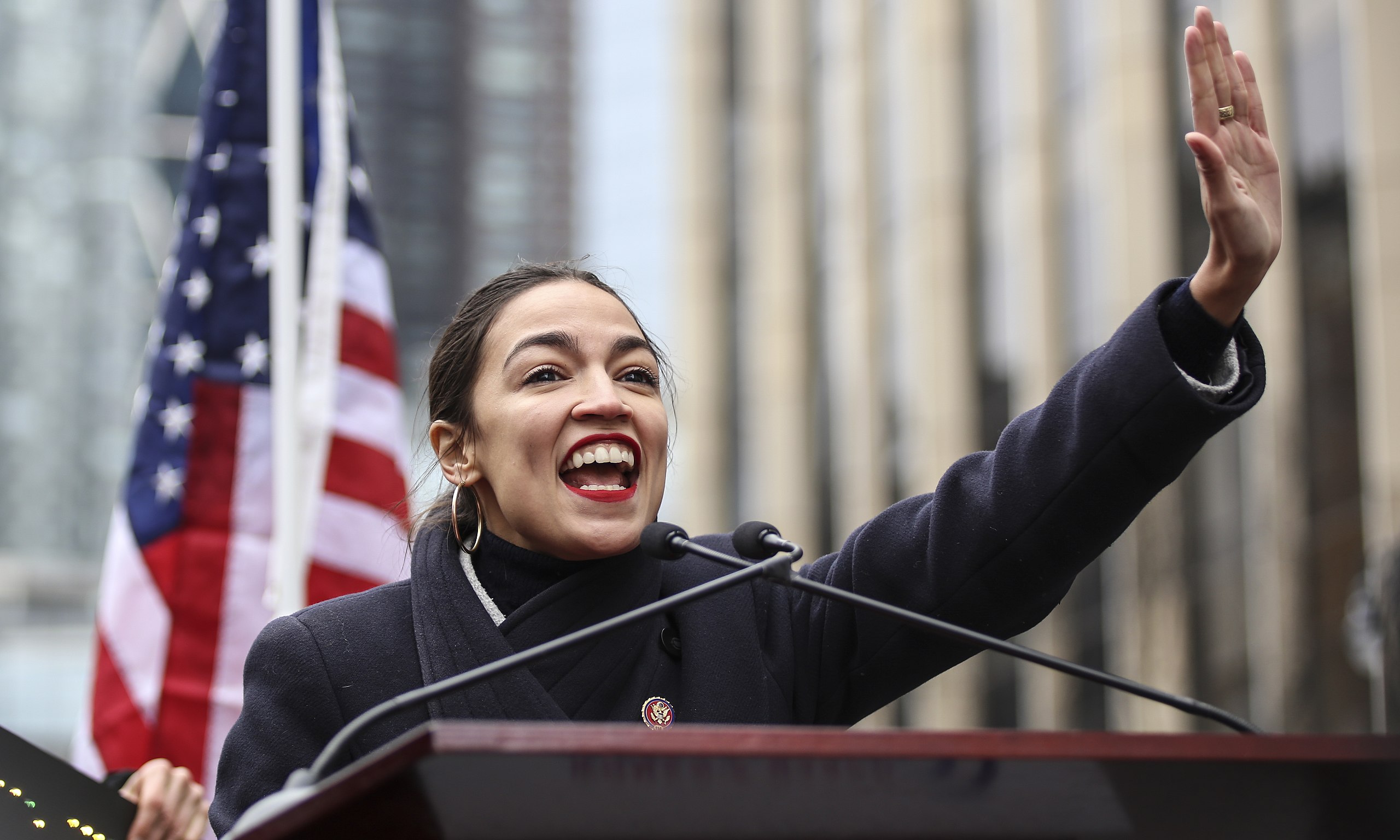
Is conditioning Israel aid unprecedented?
While the public shift in the discourse surrounding Israel-Palestine is monumental, this tug-and-pull between “rogue” U.S. politicians going against the grain of unconditional support for Israel, bulwarked in great part by Israel lobby groups, is not necessarily new.
The first public stand-off in recent decades over the question of U.S. financial support to Israel in fact came from the Republican administration of George H.W. Bush. Fresh of the heels of his refusal to recognize Israel’s 1980 annexation of East Jerusalem, and after pressing the Israeli government not to respond to Iraq’s missile attacks during 1991 Gulf War, the elder Bush stirred massive controversy when he froze $10 billion in loan guarantees intended to help Jews from the former Soviet Union settle in Israel.
Bush sought to use this freeze, set for 120 days, to diplomatically pressure the Likud government, then led by Yitzhak Shamir, to halt the building of illegal settlements in the occupied territories and to engage in peace talks with the Palestine Liberation Organization. The diplomatic pressure ultimately worked, leading Israel to enter the Madrid Peace Conference in October 1991. For its cooperation, Israel would eventually receive a further $10 billion in aid under the Bush administration.
The lessons of this brief episode in U.S.-Israel relations are very indicative of present dynamics. Throughout the time of the loan’s suspension, Congress applied relentless pressure on Bush Sr. to reverse his pressure on Israel, leading him to comment, “There are 1,000 lobbyists up on the Hill today lobbying Congress for loan guarantees for Israel and I’m one lonely little guy down here asking Congress to delay its consideration of loan guarantees for 120 days.” H.W. Partly due to this fallout, Bush would go on to receive the second lowest Jewish turnout for a Republican presidential nominee in U.S. history (after Barry Goldwater), with 11 percent, in his race against Bill Clinton.
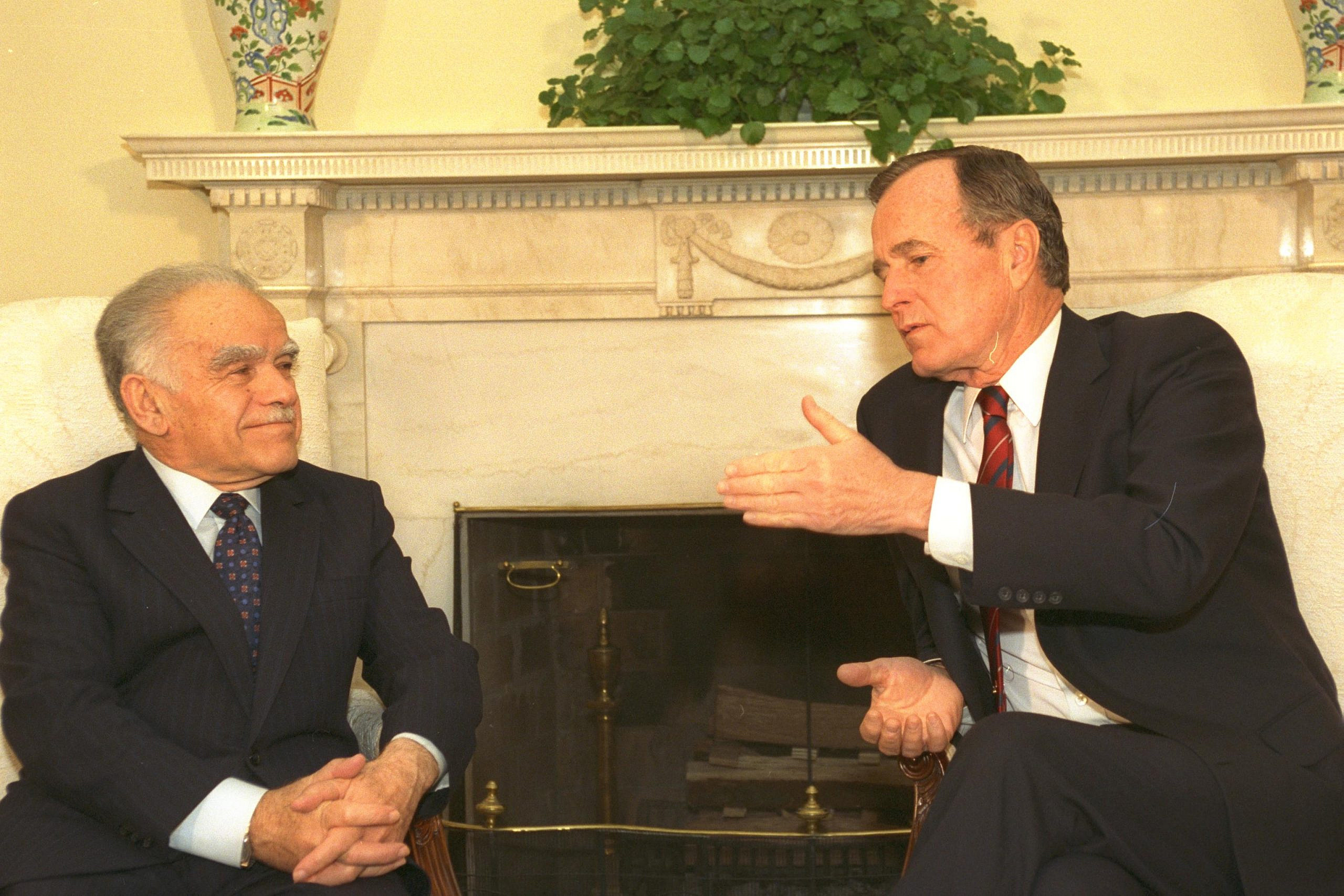
Even Democrats have taken advantage of this past contention to score points with the Israel lobby. A decade after Bush’s standoff, in an address to AIPAC in May 2000, Democratic presidential candidate Al Gore proudly recalled, “I remember standing up against Bush’s foreign policy advisers who promoted the insulting concept of linkage, which tried to use loan guarantees as a stick to bully Israel. I stood with you, and together we defeated them.”
Bush would become the last U.S. president to initiate such a move against Israel’s policies. His successor, Clinton, made no secret of his negative view of Israel’s settlement expansion and its impeding of the peace process, lamenting that then-Prime Minister Benjamin Netanyahu was “preempting the outcome of something they’ve already agreed should be part of the final negotiations.” Clinton’s criticism, however, did not stop his administration from signing the first Memorandum of Understanding (MOU) between the two countries, known as the Glide Path Agreement, which pledged that the United States would provide Israel with at least $26.7 billion in economic and military aid over 10 years.
In a similar lukewarm vein to Clinton, George W. Bush passively expressed his disapproval of settlement expansion while nevertheless continuing U.S. economic and military aid to Israel. He also went so far as to be the first president to officially declare U.S. support for an independent Palestinian state as part of the 2002 “Roadmap for Peace.” However, the Bush Jr. administration still renewed the MOU in 2007, committing a further $30 billion for another 10 years.
The Barack Obama administration, meanwhile, was seen as having a tumultuous relationship with Israel, given Netanyahu’s disapproval of his efforts at deescalating tensions with Iran and his passage of a UN Security Council resolution that criticized settlements in the twilight of his second term. Yet U.S. economic and military commitment to Israel remained as steadfast as ever.
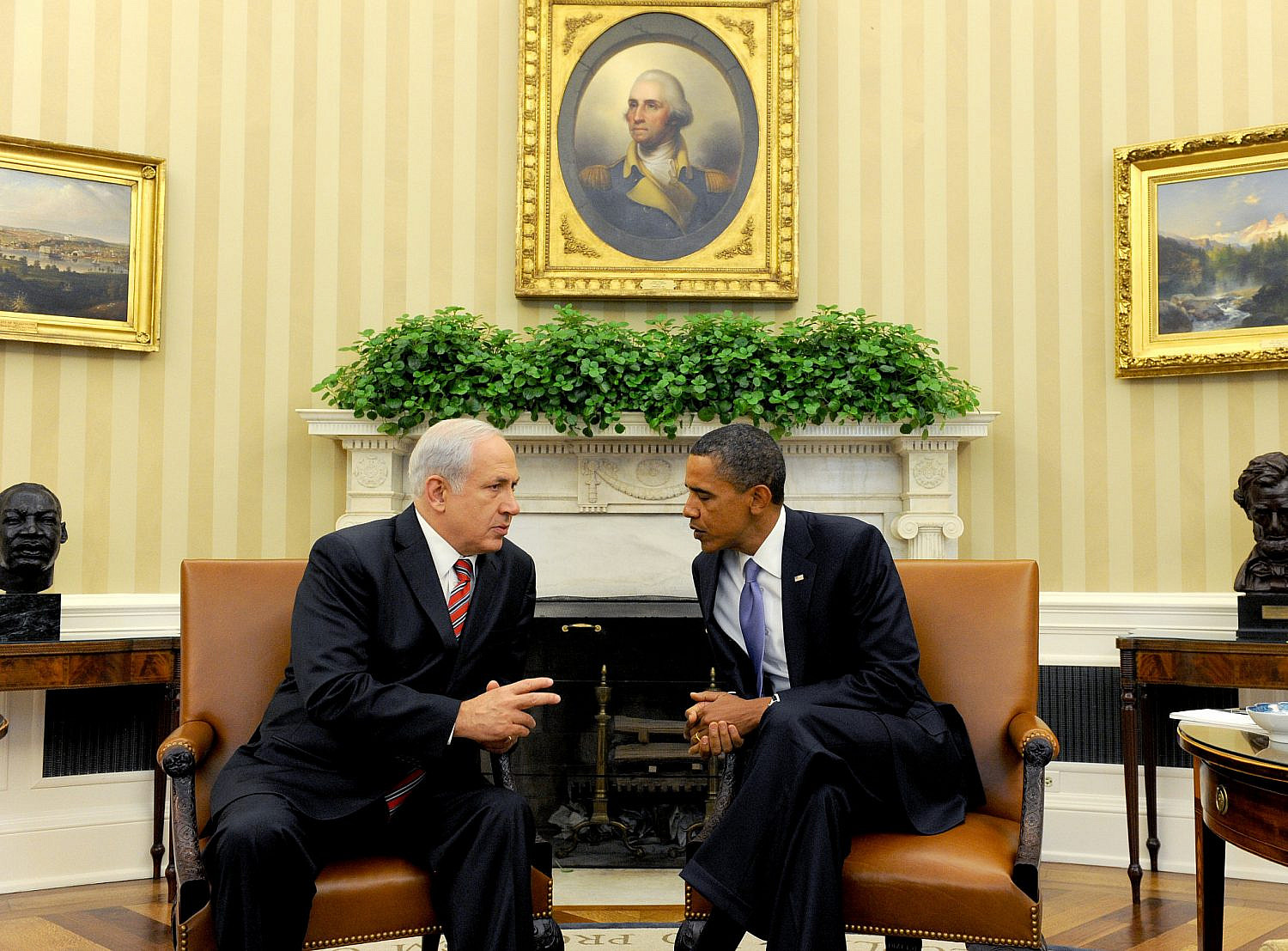
In 2016, before handing over office to Donald Trump, Obama renewed the MOU for a third time and committed $38 billion in military funds to Israel for another 10 years, the largest aid package in U.S. history at the time. “The new MOU will make a significant contribution to Israel’s security in what remains a dangerous neighborhood,” Obama said in a written statement.
The Trump administration forewent the virtue signaling of past administrations and refused to even call Israeli settlements in the occupied territories illegal, with former Secretary of State Mike Pompeo stating “the establishment of Israeli civilian settlements in the West Bank is not per se inconsistent with international law.” In addition to the commitments made as part of the Kushner orchestrated “Deal of the Century”, the Trump administration also saw the continued commitment of $18.9 billion in aid to Israel as part of the Obama-approved MOU.
Like his predecessors before him except for Trump, Biden has echoed the traditional, lukewarm slapping-of-the-wrist in criticizing Israel’s continued settlement expansion while proposing no policy action to address it. Instead, Biden pledged $3.8 billion in aid to Israel as part of the Obama-approved MOU in his 2022 spending plan — $1.3 billion more than the $2.5 billion his administration has allocated for global climate change mitigation.
No longer an afterthought
Given the military support historically baked into federal agreements with Israel, some critics may view the progressive Democrats’ actions as too little, too late at best, or electoral posturing at worst. Yet for a true challenge to mount against U.S. complicity in the Israeli army’s brutal occupation and its siege of Gaza, there is no doubt that progressive politicians must call into question such cornerstone policy measures like the MOU, rather than just “care package” arms deals as the one currently under scrutiny.
It is nonetheless testament to the intense coverage of the events in Israel-Palestine by activists and alternative media, both over the past month and in recent years, in forcing a change in the global discourse despite mass attempts at censorship. The resulting shift in opinion of Israel’s occupation among parts of the Democratic electorate has emboldened these progressive politicians to question Washington’s financial support of the Israeli military and to introduce critical pieces of legislation.
These resolutions are likely to be rejected in both chambers of Congress, given establishment Democrat and Republican politicians’ continued support of the Israeli government. Indeed, on April 22, more than 300 U.S. legislators signed a letter urging continued unconditional support for Israel. The funding, they claimed, is “a vital and cost-effective expenditure which advances important U.S. national security interests,” insisting that conditioning it would be “irresponsible” and stressing that past Republican and Democratic presidents “have [always] understood the strategic importance of providing Israel with security assistance.”
While it may not pass, the Senate vote on the resolutions forces the hand of many Democratic politicians to declare their stance on this increasingly divisive issue which was once a given afterthought for American foreign policy. This has the potential to further deepen the divide between progressive and establishment Democrats — a recurring theme in Biden’s presidency so far.
As the dust of the Israeli army’s brutal attack on Gaza settles, and as the strip’s residents begin the grueling process of rebuilding, the Palestinian community of Sheikh Jarrah has succeeded in bringing the immorality of their neighbors’ attempted expulsions and the broad question of Israel’s military rule into the spotlight of the international arena, and, more impressively, of national American discourse.
Whereas in the past negative public opinion of Israel’s routine bombardment of Gaza would quickly dissipate following the declaration of a piecemeal ceasefire, today it is being seriously discussed in the bureaucratic halls of the world’s largest economic and military superpower, which continues to finance and sanction Israel’s oppressive policies. The credit for that monumental shift goes first and foremost to the consistent grassroots international pressure created by Palestinian activists, journalists, and working-class people on the ground.

